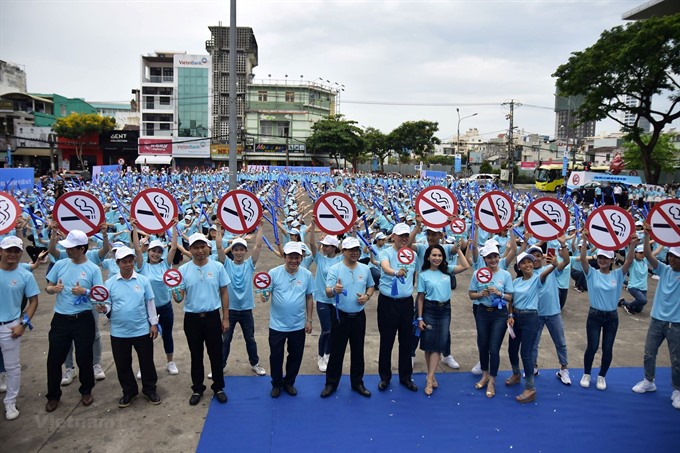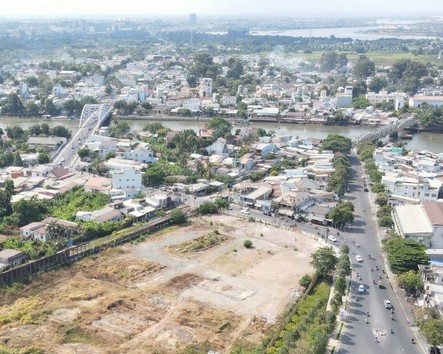 Society
Society

The new cigarette tax rate of VNĐ5,000 (US$0.2) per pack will help reduce the rate of tobacco consumption and strengthen the State budget, health experts have said.
 |
| Volunteers join a campaign against the use of tobacco in central Đà Nẵng City. — VNA/VNS Photo |
HÀ NỘI — The new cigarette tax rate of VNĐ5,000 (US$0.2) per pack will help reduce the rate of tobacco consumption and strengthen the State budget, health experts have said.
Speaking at the conference on tax incentives to prevent tobacco harm on Tuesday morning, health experts said the application of the special consumption tax rate will reduce the tobacco use rate among men from 45.3 per cent to 39 per cent by 2020.
Currently, Việt
The country has been suffering the burden of disease and financial loss caused by tobacco use. In 2015, Vietnamese people spent up to VNĐ31 trillion ($1.3 billion) on cigarettes and more VNĐ24 trillion ($1.03 billion) on treatment of tobacco-related diseases such as lung cancer, respiratory and cardiovascular diseases, stroke and heart attack.
More than 40,000 tobacco-related deaths are reported each year in Việt
Nguyễn Tuấn Lâm, a WHO expert, said the tariff rate on the cigarette retail price in Việt
Due to the low tariff, Việt
Lâm said the Ministry of Finance’s proposal on applying the absolute tax rate of VNĐ1,000 ($0.04) per cigarette pack and VNĐ15,000 per cigar since early January, 2020 would help reduce the rate of smokers by only 1.5 percentage points and bring more than VNĐ3.9 billion ($167,700) to the State budget.
However, he said, to achieve the national target on reducing the rate of tobacco use by 6.3 percentage points by 2020, the absolute tax rate should be VNĐ5,000 per pack. This would also bring VNĐ10.7 trillion ($460 million) to the State budget.
Đỗ Thị Phi, a representative from the Centre for Research and Community Development Services, said the results from a public survey implemented in Hà Nội and
Another survey implemented by the
PhD Nguyễn Ngọc Anh, director of the Development and Policies Research Centre, said many tobacco producers said the tax increase on domestic-produced tobacco would increase the smuggling of tobacco.
This assumption was not accurate as the price of smuggled tobacco was much higher than the domestic-produced products, he said. The consumption of smuggled tobacco is all about consumers’ taste, not about the prices. He cited imported cigarette Jet as an example. The branch occupied 83.6 per cent of the market last year, and its price was much higher than that of the domestic branches.
The conference was jointly held by the Ministry of Information and Communications and HealthBridge



